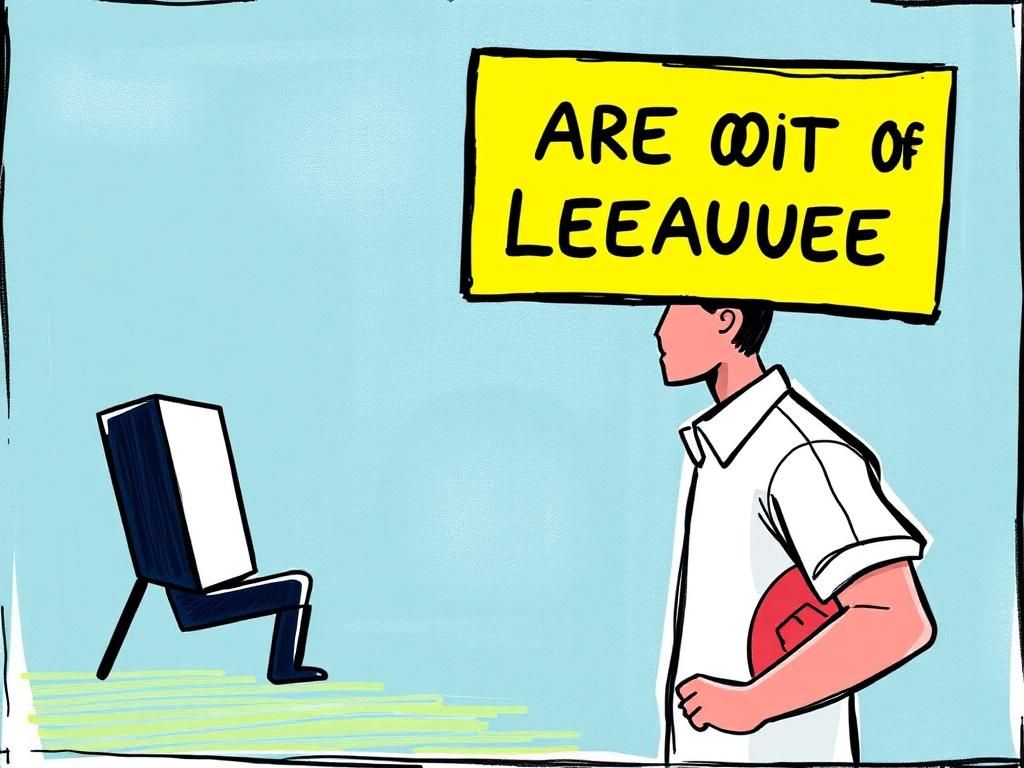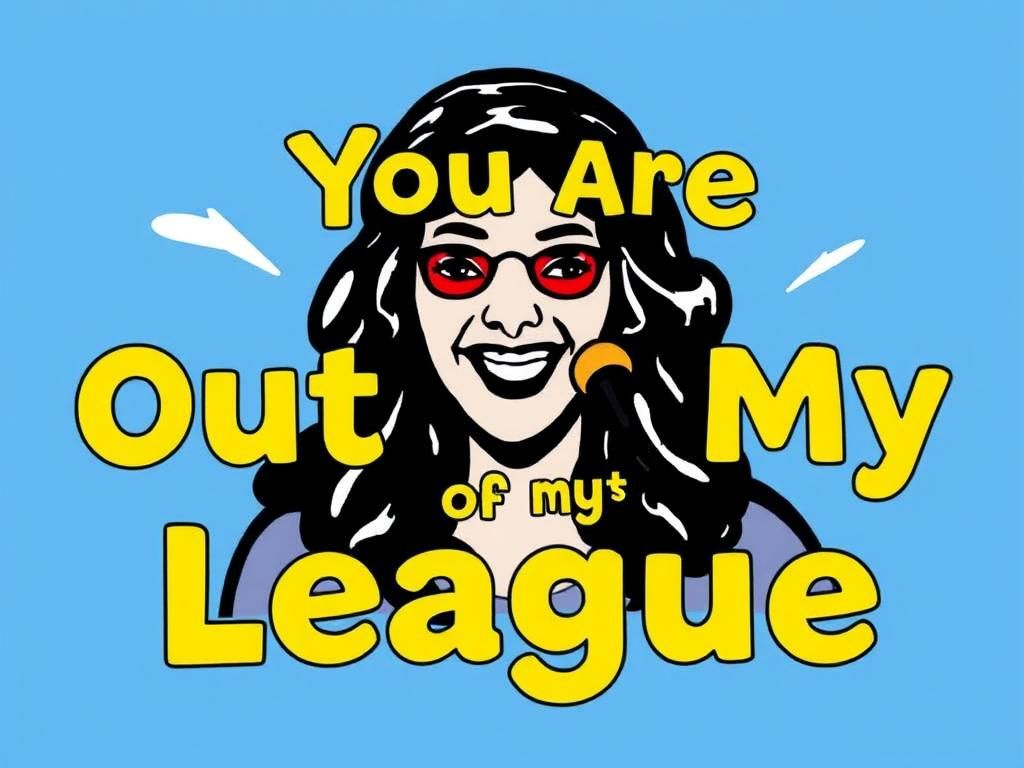The phrase “you are out of my league” has become a ubiquitous expression in the world of dating and relationships. Typically used to express feelings of inadequacy or being outmatched, the term captures a common sentiment where individuals perceive others as being far superior in beauty, intelligence, or status—thus leading to self-doubt and a lack of confidence. This deeply ingrained perception influences not only how we see ourselves but also how we approach relationships, often causing us to shy away from potential connections. In this article, we will explore the various dimensions of feeling “out of someone’s league,” delving into its origins, psychological implications, and practical strategies for overcoming these barriers to form meaningful relationships.
The Origins of the Phrase
Historical Context
The phrase “you are out of my league” finds its roots in competitive sports, where athletes often talk about playing at different levels of skill. Over time, this terminology has migrated into romantic and social contexts, where it encapsulates the idea of unequal pairings based on perceived attributes. This evolution signifies not only a shift in language but also a broader cultural acceptance of this way of thinking.
Anecdotes and Popular References
The phrase has been popularized through various forms of media. For example, romantic comedies like 10 Things I Hate About You portray characters grappling with their self-image and perceived social status. Songs such as “You Belong with Me” by Taylor Swift encapsulate the feeling of unrequited attraction, where one partner believes the other is simply “out of their league.” Such cultural references highlight how prevalent the idea has become, shaping our beliefs about love and attraction.
Understanding the Psychology Behind “Out of My League”
Social Comparison Theory
Social comparison theory posits that we evaluate our worth by comparing ourselves to others. This comparison can lead to feelings of inferiority, especially when we feel that someone else fulfills societal standards of attractiveness or success more effectively than we do. As a result, the phrase “you are out of my league” can significantly impact self-esteem and confidence. The emotion can ignite feelings of self-doubt and insecurity, often preventing individuals from pursuing relationships.
Implicit Biases and Societal Standards
In addition to social comparison, implicit biases regarding attractiveness, class, and intellect exacerbate the sense of being “out of someone’s league.” Societal standards—often portrayed through media—convey specific traits associated with desirability. Beauty standards can create unrealistic expectations that elevate certain physical features over others. Similarly, socio-economic status plays a crucial role in perceived attractiveness, contributing to feelings of inadequacy in potential partners. When these biases combine, they can significantly skew perceptions of one’s worth in the romantic landscape.
The Impact on Relationships
Fear of Rejection
The perception of being “out of someone’s league” often cultivates a profound fear of rejection. Individuals may hesitate to approach someone they view as more desirable, fearing that their advances will be met with dismissal. This fear limits opportunities for genuine connections, as potential partners are often discouraged from expressing their feelings. Vulnerability is essential for forming meaningful relationships, and when self-doubt clouds our judgment, we may miss out on developing emotional bonds.
Disparities in Relationship Dynamics

Perceived league differences can create unbalanced power dynamics in relationships. When one partner feels inferior, they may be more willing to compromise on their needs, which can lead to resentment over time. This imbalance can affect emotional health, leading to dissatisfaction or misunderstandings. Conversely, the partner who is perceived as “out of reach” may inadvertently feel pressure to maintain a façade of superiority, leading to their emotional struggles as well. Recognizing these dynamics is crucial for fostering healthier relationships.
Growing Beyond League Perceptions
Building Self-Esteem and Confidence
Overcoming the notion of being “out of someone’s league” begins with self-acceptance. Building self-esteem can be achieved through a variety of practical strategies:
- Focus on strengths: Identify personal traits that make you unique and valuable in relationships.
- Surround yourself with supportive individuals: Engage with those who uplift you and challenge negative perceptions.
- Practice self-care: Prioritize activities that enhance your well-being, including exercise, meditation, and hobbies.
Realizing the Importance of Compatibility Over League
Ultimately, finding compatibility should supersede concerns about league differences. Shared interests, values, and emotional intelligence play a more significant role in successful relationships than arbitrary societal standards. Engaging in meaningful conversations and expressing vulnerability can promote deeper connections based on mutual respect. Couples who prioritize these factors often find that their differences become less significant over time. The key lies in recognizing that attraction is subjective and multifaceted, allowing for a broader perspective when seeking connections.
Case Studies and Personal Experiences
Testimonials of Overcoming League Perceptions
Real-life stories often shed light on how individuals transcended feelings of being “out of someone’s league.” For instance, a couple who met through a shared interest in hiking initially felt intimidated by their differences in social status. However, through open communication and shared experiences, they built a solid friendship that blossomed into romance, emphasizing that compatibility transcends superficial measures.
Interviews with Relationship Experts
Insights from relationship experts reiterate the importance of confidence in forming successful partnerships. One expert noted, “Often, individuals fail to realize that attraction encompasses more than just physical appearance; emotional intelligence and compatibility are equally significant.” Such insights affirm that self-worth is a crucial factor in pursuing connections beyond perceived leagues.
How to Approach Someone Who Seems “Out of Your League”
Tips for Initiating Conversation
When it comes to approaching someone who seems “out of your league,” the focus should be on authenticity and confidence. Here are some effective strategies:
- Be genuine: Authenticity often attracts others. Share your true self without pretenses.
- Use humor: Light-heartedness can ease anxiety and create a relaxed atmosphere.
- Compliment thoughtfully: Personal, specific compliments show genuine interest and admiration.

Building Rapport and Comfort
Once a conversation is initiated, it’s crucial to build rapport:
- Find common interests: Explore shared hobbies or passions that can maintain engaging dialogue.
- Active listening: Pay attention to your conversation partner’s words and respond thoughtfully, validating their feelings and opinions.
Conclusion
By understanding the concept of feeling “out of someone’s league,” individuals can gain insights into their emotions and behaviors in romantic pursuits. It is vital to prioritize self-worth and challenge societal expectations regarding attractiveness. At the core of successful relationships lies compatibility and emotional connection rather than preconceived notions of superiority. We encourage readers to reflect on their perceptions of self and others, and to pursue meaningful connections that may initially seem out of reach.
Additional Resources
To further your journey towards understanding self-esteem and relationships, consider the following resources:
- Books: Explore titles such as The Gifts of Imperfection by Brené Brown and Attached by Amir Levine for insights on self-acceptance and relationship dynamics.
- Online forums: Engage with communities focused on personal growth and dating, such as Reddit’s relationships subreddit.
- Professional Help: If feelings of inadequacy persist, seeking counseling can provide invaluable support.
| Key Aspects | Implications |
|---|---|
| Historical Context | Phrase began in sports, adapted for social and romantic use. |
| Social Comparison | Impact on self-esteem; leads to feelings of inadequacy. |
| Power Dynamics | Unequal feelings can lead to emotional imbalance. |
| Self-Esteem Building | Focus on personal strengths and positive relationships. |
| Compatibility | Value shared interests and emotional intelligence over perceived leagues. |
FAQs
1. What does it mean to say “you are out of my league”?
This phrase typically indicates a feeling of inadequacy in the face of someone perceived as more attractive or desirable.
2. How can I overcome feelings of being out of someone’s league?
Building self-esteem, practicing self-care, and focusing on compatibility can help overcome these feelings.
3. Is it common to feel out of someone’s league?
Yes, many people experience this feeling, especially in romantic situations.
4. Does social media contribute to the feeling of being out of someone’s league?
Absolutely; social media often highlights curated aspects of people’s lives, leading to unhealthy comparisons.
5. Can attraction be subjective?
Yes, attraction is influenced by various factors, including personality, shared interests, and emotional connection.
6. How important is vulnerability in relationships?
Vulnerability is crucial for forming emotional connections; it fosters intimacy and trust.
7. What role do societal standards play in attraction?
Societal standards can create biases about attractiveness, impacting self-perception and relationship dynamics.
8. Are there strategies for approaching someone I find attractive?
Use authenticity, humor, and thoughtful compliments to ease the initial interactions.
9. How can I build confidence in dating?
Engage in activities that enhance your self-worth and surround yourself with supportive friends.
10. Should I seek professional help for self-esteem issues?
If feelings of inadequacy persist, seeking help from a therapist or counselor can provide beneficial support.


